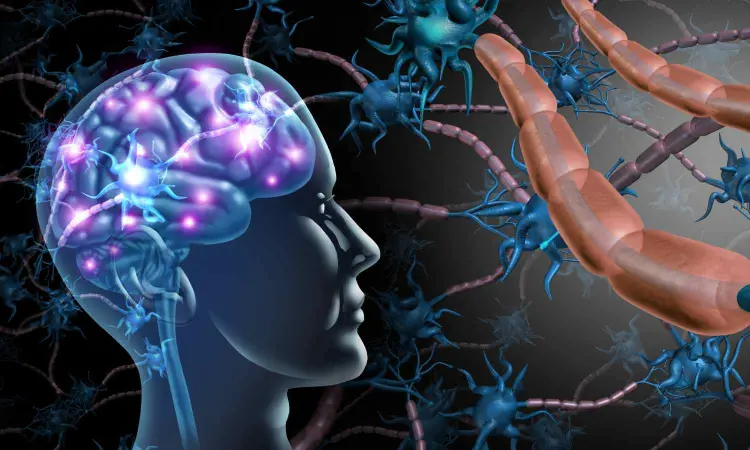- Home
- Medical news & Guidelines
- Anesthesiology
- Cardiology and CTVS
- Critical Care
- Dentistry
- Dermatology
- Diabetes and Endocrinology
- ENT
- Gastroenterology
- Medicine
- Nephrology
- Neurology
- Obstretics-Gynaecology
- Oncology
- Ophthalmology
- Orthopaedics
- Pediatrics-Neonatology
- Psychiatry
- Pulmonology
- Radiology
- Surgery
- Urology
- Laboratory Medicine
- Diet
- Nursing
- Paramedical
- Physiotherapy
- Health news
- Fact Check
- Bone Health Fact Check
- Brain Health Fact Check
- Cancer Related Fact Check
- Child Care Fact Check
- Dental and oral health fact check
- Diabetes and metabolic health fact check
- Diet and Nutrition Fact Check
- Eye and ENT Care Fact Check
- Fitness fact check
- Gut health fact check
- Heart health fact check
- Kidney health fact check
- Medical education fact check
- Men's health fact check
- Respiratory fact check
- Skin and hair care fact check
- Vaccine and Immunization fact check
- Women's health fact check
- AYUSH
- State News
- Andaman and Nicobar Islands
- Andhra Pradesh
- Arunachal Pradesh
- Assam
- Bihar
- Chandigarh
- Chattisgarh
- Dadra and Nagar Haveli
- Daman and Diu
- Delhi
- Goa
- Gujarat
- Haryana
- Himachal Pradesh
- Jammu & Kashmir
- Jharkhand
- Karnataka
- Kerala
- Ladakh
- Lakshadweep
- Madhya Pradesh
- Maharashtra
- Manipur
- Meghalaya
- Mizoram
- Nagaland
- Odisha
- Puducherry
- Punjab
- Rajasthan
- Sikkim
- Tamil Nadu
- Telangana
- Tripura
- Uttar Pradesh
- Uttrakhand
- West Bengal
- Medical Education
- Industry
New drug shows promise in restoring vision for people with nerve damage, claims research

Researchers at the University of Colorado Anschutz Medical Campus have found a promising drug candidate that could help restore vision in individuals with multiple sclerosis (MS) and other neurological conditions that damage neurons.
The study was published this week in the journal Nature Communications.
The drug, LL-341070, enhances the brain's ability to repair damaged myelin-the protective sheath around nerve fibers. Damage to myelin is a hallmark of diseases like MS, as well as a natural consequence of aging, often resulting in vision loss, loss of motor skills, and cognitive decline.
The research, focused on vision, demonstrated that while the brain has some ability to repair itself when myelin is damaged, the process can be slow and inefficient. Researchers observed that LL-341070 significantly accelerated the repair process and improved brain function related to vision in mice, even after severe damage.
“This research brings us closer to a world where the brain has the capacity to heal itself” said Ethan Hughes, PhD, co-lead author and associate professor in the Department of Cell and Developmental Biology at the CU School of Medicine. “By harnessing this potential, we hope to help people with diseases like MS by potentially reversing some of the damage, offering people the opportunity to regain their vision and cognitive function."
Researchers discovered that the treatment makes the repair process is much more effective following serious damage, highlighting the importance of intervention with severe injury. Even partial repair of myelin was found to significantly improve vision-related brain functions.
“We've known for years that myelin plays a crucial role in brain function,” said Daniel Denman, PhD, co-lead author of the study and assistant professor in the Department of Physiology and Biophysics at the CU School of Medicine. “This study highlights the role of cortical myelin in visual function. The drug could be a game-changer because it accelerates the brain’s natural repair mechanisms.”
The researchers plan to test the drug in other areas of the brain and refine the treatment, hoping to make it even more effective and eventually accessible to patients.
“This discovery is just the beginning,” Hughes said. “We are optimistic that LL-341070 and similar therapies could one day provide real, tangible benefits to patients by improving overall brain function and quality of life.”
Reference:
Della-Flora Nunes, G., Osso, L.A., Haynes, J.A. et al. Incomplete remyelination via therapeutically enhanced oligodendrogenesis is sufficient to recover visual cortical function. Nat Commun 16, 732 (2025). https://doi.org/10.1038/s41467-025-56092-6
Dr Kamal Kant Kohli-MBBS, DTCD- a chest specialist with more than 30 years of practice and a flair for writing clinical articles, Dr Kamal Kant Kohli joined Medical Dialogues as a Chief Editor of Medical News. Besides writing articles, as an editor, he proofreads and verifies all the medical content published on Medical Dialogues including those coming from journals, studies,medical conferences,guidelines etc. Email: drkohli@medicaldialogues.in. Contact no. 011-43720751


